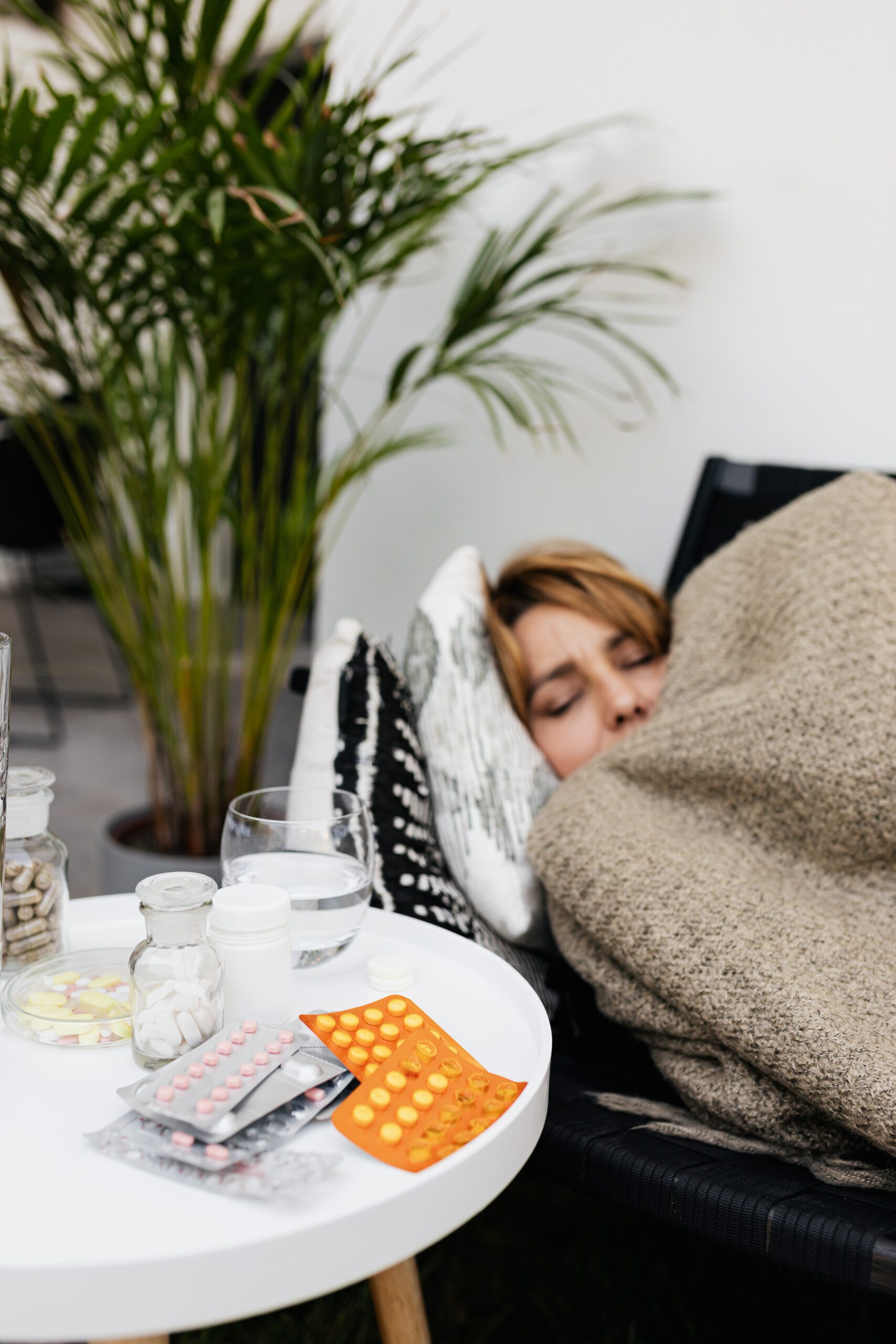Sleep is essential for physical and mental well-being, but many people struggle with getting enough quality sleep. This is why over-the-counter (OTC) sleep aids have become increasingly popular in recent years. OTC sleep aids are a convenient and easily accessible option for those who are looking for a quick fix for their sleep problems. Below are the pros and cons of over the counter sleep aids.
Types of Over The Counter Sleep Aids
There are two main categories of OTC sleep aids: antihistamines and natural remedies. Antihistamines, such as Diphenhydramine (Benadryl) and Doxylamine (Unisom), are designed to relieve allergy symptoms but are often used as sleep aids due to their sedative properties. Natural remedies, such as melatonin and valerian root, are marketed as more “natural” options for improving sleep.
Pros of Over The Counter Sleep Aids
- Convenience: One of the biggest advantages of OTC sleep aids is their convenience. They are widely available at drugstores, supermarkets, and online without a prescription. They are also easy to take and have a quick onset of action, making them a popular choice for people who need a quick solution for their sleep problems.
- Cost-effective: OTC sleep aids are typically less expensive than prescription sleep aids, making them a more budget-friendly option.
- No prescription needed: Since OTC sleep aids do not require a prescription, they can be a good option for people who do not have access to a doctor or who are uncomfortable discussing their sleep problems with a healthcare provider.
Cons of Over The Counter Sleep Aids
- Lack of regulation: Unlike prescription sleep aids, OTC sleep aids are not regulated by the Food and Drug Administration (FDA). This means that the quality, safety, and effectiveness of these products may vary, and the information provided on the label may not be accurate.
- Side effects: Some OTC sleep aids can cause side effects, such as dry mouth, drowsiness, dizziness, and headache. In some cases, these side effects can be severe and even dangerous, especially when used in combination with other medications or alcohol.
- Tolerance and dependence: Regular use of OTC sleep aids can lead to tolerance, meaning that over time, the same dose will have less effect. This can lead to dependence, where the person feels the need to take the sleep aid in order to fall asleep.
- Interference with quality of sleep: Some OTC sleep aids can interfere with the quality of sleep. For example, antihistamines can cause grogginess and disrupt deep sleep, making it harder to feel refreshed in the morning.
- Long-term use: Long-term use of OTC sleep aids can have negative effects on health, such as increased risk of depression, memory impairment, and increased risk of falls and accidents.
Possible Side Effects of Over The Counter Sleep Aids
The side effects of OTC sleep aids vary depending on the type of product and the individual. Some common side effects of antihistamines include dry mouth, drowsiness, dizziness, and headache. Natural remedies, such as melatonin and valerian root, can cause stomach upset, headache, and dizziness.
It is important to note that some people may experience more severe side effects from OTC sleep aids, such as confusion, hallucinations, and memory problems. If you experience any of these side effects, it is important to stop using the product and seek medical attention immediately.
Additionally, it is important to talk to a healthcare provider before using OTC sleep aids, especially if you have pre-existing health conditions or are taking other medications. Some OTC sleep aids can interact with other medications, leading to harmful side effects.
Tips for Improving Sleep without Over The Counter Sleep Aids
For many people, the best way to improve sleep is to adopt healthy sleep habits and make lifestyle changes. Here are some tips for improving sleep without relying on OTC sleep aids:
- Stick to a sleep schedule: Try to go to bed and wake up at the same time every day, even on weekends. This will help regulate your body’s sleep-wake cycle.
- Create a bedtime routine: Establish a relaxing bedtime routine, such as reading a book or taking a warm bath, to signal to your body that it is time to wind down and prepare for sleep.
- Create a sleep-conducive environment: Make sure your bedroom is cool, quiet, and dark. Invest in a comfortable mattress and pillows to support a good night’s sleep.
- Limit exposure to screens: Avoid using electronic devices, such as smartphones and laptops, before bedtime. The blue light emitted by these devices can interfere with sleep by suppressing the production of melatonin, a hormone that regulates sleep.
- Exercise regularly: Regular exercise can improve sleep quality, but it is best to avoid exercising within a few hours of bedtime, as this can disrupt sleep.
- Avoid caffeine and alcohol: Caffeine and alcohol can interfere with sleep, so it is best to avoid them in the hours leading up to bedtime.
- Reduce stress: Stress can interfere with sleep, so it is important to find ways to manage stress, such as practicing mindfulness, meditating, or engaging in relaxing activities.
In conclusion, OTC sleep aids can be a convenient option for those struggling with sleep, but they also come with a range of pros and cons. It is important to be aware of the potential side effects and to talk to a healthcare provider before using these products. For many people, making lifestyle changes and adopting healthy sleep habits can be the best solution for improving sleep without relying on OTC sleep aids.
Sources:
- National Sleep Foundation. (2021). Over-the-Counter Sleep Aids: What You Need to Know. Retrieved from https://www.sleep.org/articles/over-the-counter-sleep-aids/
- American Academy of Sleep Medicine. (2021). Over-the-Counter Sleep Aids. Retrieved from https://www.aasm.org/patients/sleep-medications/over-the-counter-sleep-aids/
- Mayo Clinic. (2021). Sleep Aids: Over-the-Counter Options. Retrieved from https://www.mayoclinic.org/healthy-lifestyle/adult-health/in-depth/sleep-aids/art-20043959
- Food and Drug Administration. (2021). Over-the-Counter Sleep Aids. Retrieved from https://www.fda.gov/drugs/resources-information-approved-drugs/over-counter-sleep-aids
